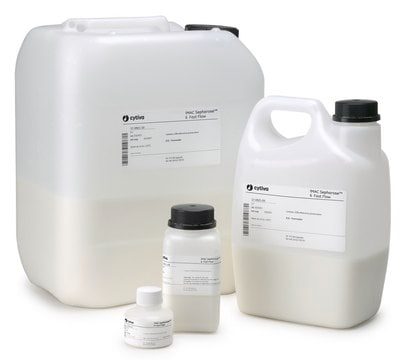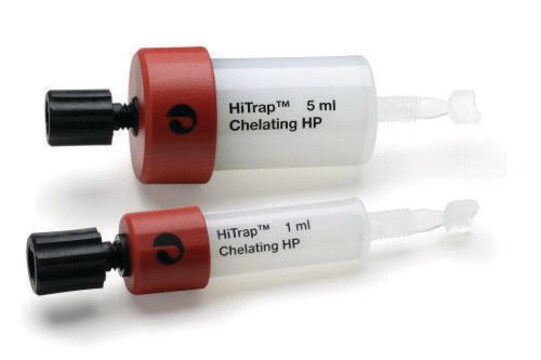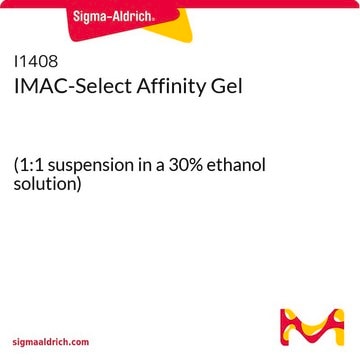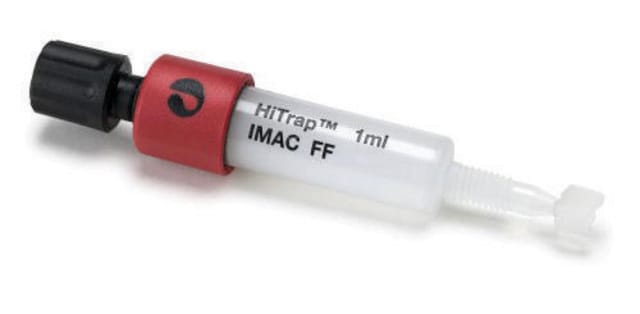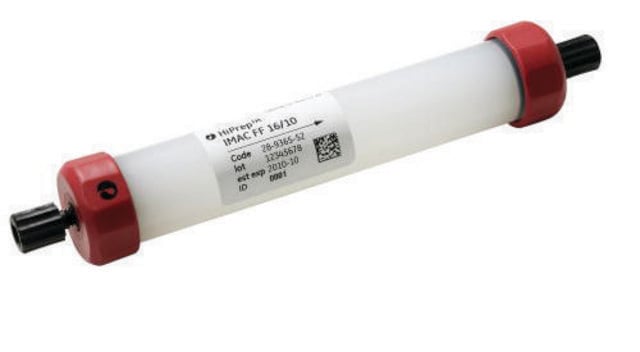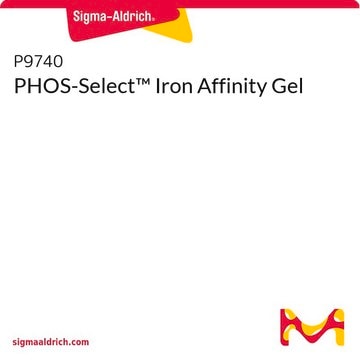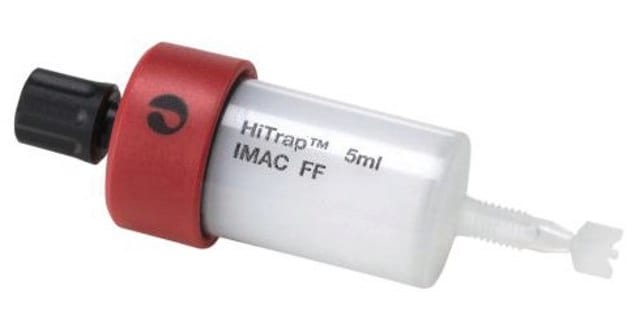GE17-0920-07
IMAC Sepharose™ High Performance
Cytiva 17-0920-07, pack of 100 mL
About This Item
Recommended Products
packaging
pack of 100 mL
manufacturer/tradename
Cytiva 17-0920-07
matrix
highly cross-linked 6% agarose
avg. part. size
34 μm
cleaning in place
2-14(Medium uncharged with metal ions.)
working range
3-12
capacity
≥40 mg binding capacity (histidine-tagged protein/ml medium when changed with Ni2+)(Protein- and metal-ion dependent.)
General description
Application
Features and Benefits
- For optimizing purification of histidine-tagged Proteins when Ni2+ is not the best choice of metal ion
- Conveniently charge with your metal of choice
- 34 μm bead size for high performance purification
- High binding capacity
Storage and Stability
Analysis Note
Legal Information
These products are sold under a license from Sigma-Aldrich under patent number EP 1276716 (Metal chelating compositions) and equivalent patents and patent applications in other countries.
Signal Word
Warning
Hazard Statements
Precautionary Statements
Storage Class Code
3 - Flammable liquids
Certificates of Analysis (COA)
Search for Certificates of Analysis (COA) by entering the products Lot/Batch Number. Lot and Batch Numbers can be found on a product’s label following the words ‘Lot’ or ‘Batch’.
Already Own This Product?
Find documentation for the products that you have recently purchased in the Document Library.
Customers Also Viewed
Articles
How to separate proteins and peptides with affinity for metal ions by immobilized metal chelate affinity chromatography.
This page shows how to purify or remove proteins and peptides with exposed amino acids with Chelating Sepharose High Performance, Chelating Sepharose Fast Flow, Capto Chelating from Cytiva.
Follow established procedures for recombinant protein expression, growth, induction, and cell lysis optimization.
How to optimize purification of histidine-tagged proteins using Cytiva products.
Protocols
Protocol for Purification of Histidine-Tagged Proteins using IMAC Sepharose® High Performance
Guide for separating poly(His) fusion proteins using affinity chromatography tags in various purification products.
Sample Preparation for Affinity Chromatography in Specific Groups of Biomolecules
This page shows how to convert between linear flow and volumetric flow rates in affinity chromatography.
Our team of scientists has experience in all areas of research including Life Science, Material Science, Chemical Synthesis, Chromatography, Analytical and many others.
Contact Technical Service